第49章 OSTIG IN SKY(14)
Their arms were anciently the Glaymore,or great two-handed sword,and afterwards the two-edged sword and target,or buckler,which was sustained on the left arm.In the midst of the target,which was made of wood,covered with leather,and studded with nails,a slender lance,about two feet long,was sometimes fixed;it was heavy and cumberous,and accordingly has for some time past been gradually laid aside.Very few targets were at Culloden.The dirk,or broad dagger,I am afraid,was of more use in private quarrels than in battles.The Lochaber-ax is only a slight alteration of the old English bill.
After all that has been said of the force and terrour of the Highland sword,I could not find that the art of defence was any part of common education.The gentlemen were perhaps sometimes skilful gladiators,but the common men had no other powers than those of violence and courage.Yet it is well known,that the onset of the Highlanders was very formidable.As an army cannot consist of philosophers,a panick is easily excited by any unwonted mode of annoyance.New dangers are naturally magnified;and men accustomed only to exchange bullets at a distance,and rather to hear their enemies than see them,are discouraged and amazed when they find themselves encountered hand to hand,and catch the gleam of steel flashing in their faces.
The Highland weapons gave opportunity for many exertions of personal courage,and sometimes for single combats in the field;like those which occur so frequently in fabulous wars.At Falkirk,a gentleman now living,was,I suppose after the retreat of the King's troops,engaged at a distance from the rest with an Irish dragoon.They were both skilful swordsmen,and the contest was not easily decided:the dragoon at last had the advantage,and the Highlander called for quarter;but quarter was refused him,and the fight continued till he was reduced to defend himself upon his knee.At that instant one of the Macleods came to his rescue;who,as it is said,offered quarter to the dragoon,but he thought himself obliged to reject what he had before refused,and,as battle gives little time to deliberate,was immediately killed.
Funerals were formerly solemnized by calling multitudes together,and entertaining them at great expence.This emulation of useless cost has been for some time discouraged,and at last in the Isle of Sky is almost suppressed.
Of the Earse language,as I understand nothing,I cannot say more than I have been told.It is the rude speech of a barbarous people,who had few thoughts to express,and were content,as they conceived grossly,to be grossly understood.After what has been lately talked of Highland Bards,and Highland genius,many will startle when they are told,that the Earse never was a written language;that there is not in the world an Earse manuscript a hundred years old;and that the sounds of the Highlanders were never expressed by letters,till some little books of piety were translated,and a metrical version of the Psalms was made by the Synod of Argyle.Whoever therefore now writes in this language,spells according to his own perception of the sound,and his own idea of the power of the letters.The Welsh and the Irish are cultivated tongues.The Welsh,two hundred years ago,insulted their English neighbours for the instability of their Orthography;while the Earse merely floated in the breath of the people,and could therefore receive little improvement.
When a language begins to teem with books,it is tending to refinement;as those who undertake to teach others must have undergone some labour in improving themselves,they set a proportionate value on their own thoughts,and wish to enforce them by efficacious expressions;speech becomes embodied and permanent;different modes and phrases are compared,and the best obtains an establishment.By degrees one age improves upon another.
Exactness is first obtained,and afterwards elegance.But diction,merely vocal,is always in its childhood.As no man leaves his eloquence behind him,the new generations have all to learn.There may possibly be books without a polished language,but there can be no polished language without books.
That the Bards could not read more than the rest of their countrymen,it is reasonable to suppose;because,if they had read,they could probably have written;and how high their compositions may reasonably be rated,an inquirer may best judge by considering what stores of imagery,what principles of ratiocination,what comprehension of knowledge,and what delicacy of elocution he has known any man attain who cannot read.The state of the Bards was yet more hopeless.He that cannot read,may now converse with those that can;but the Bard was a barbarian among barbarians,who,knowing nothing himself,lived with others that knew no more.
There has lately been in the Islands one of these illiterate poets,who hearing the Bible read at church,is said to have turned the sacred history into verse.I heard part of a dialogue,composed by him,translated by a young lady in Mull,and thought it had more meaning than I expected from a man totally uneducated;but he had some opportunities of knowledge;he lived among a learned people.
After all that has been done for the instruction of the Highlanders,the antipathy between their language and literature still continues;and no man that has learned only Earse is,at this time,able to read.
The Earse has many dialects,and the words used in some Islands are not always known in others.In literate nations,though the pronunciation,and sometimes the words of common speech may differ,as now in England,compared with the South of Scotland,yet there is a written diction,which pervades all dialects,and is understood in every province.But where the whole language is colloquial,he that has only one part,never gets the rest,as he cannot get it but by change of residence.